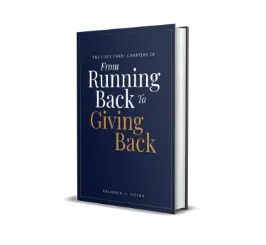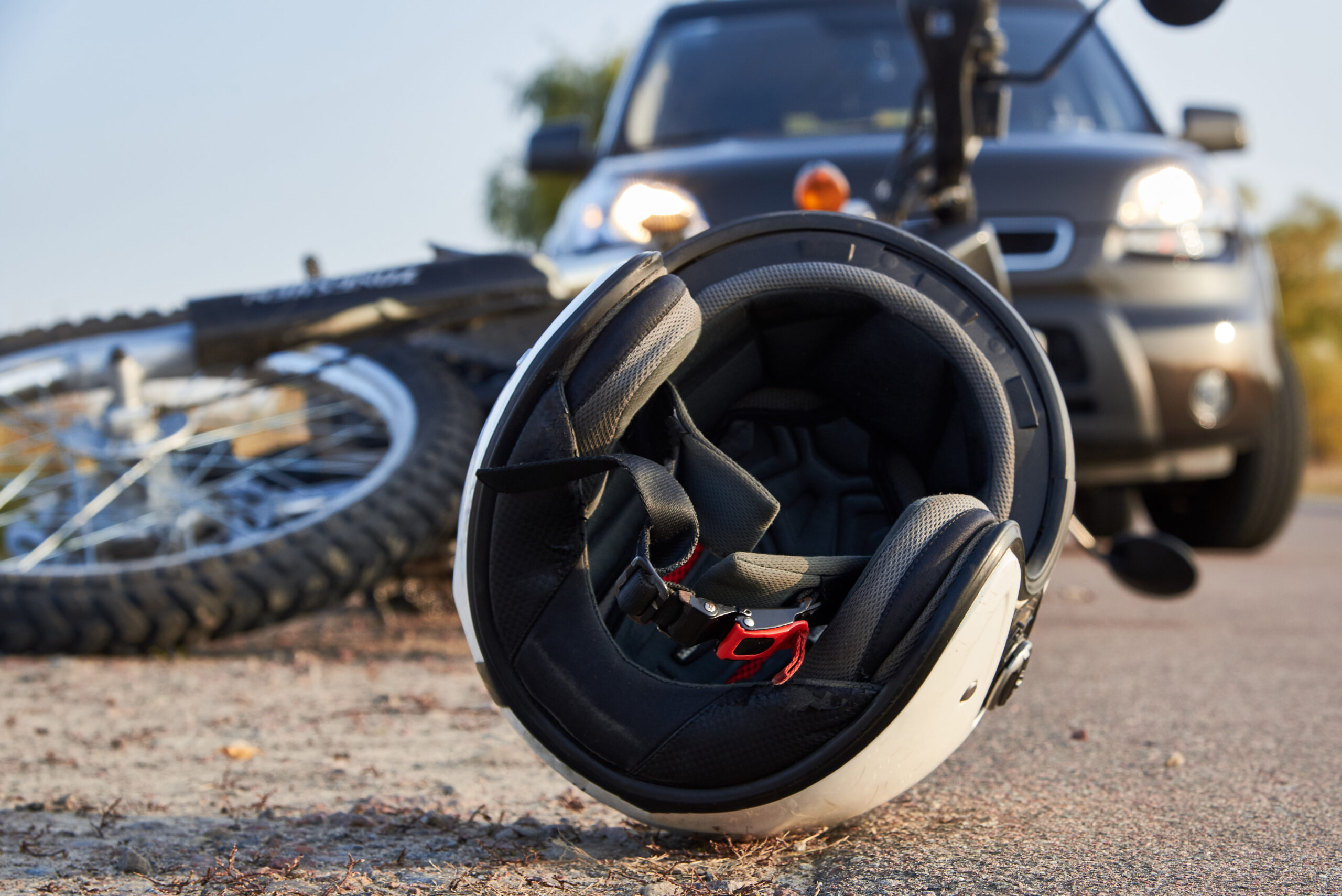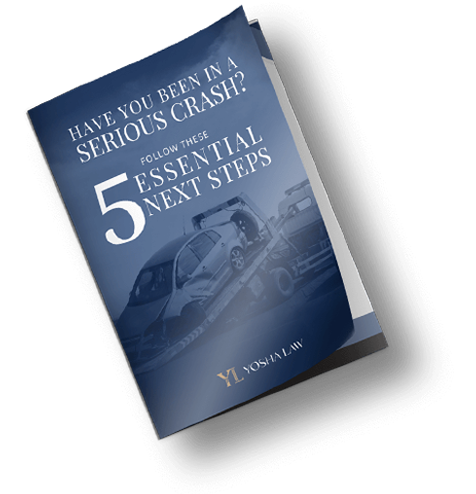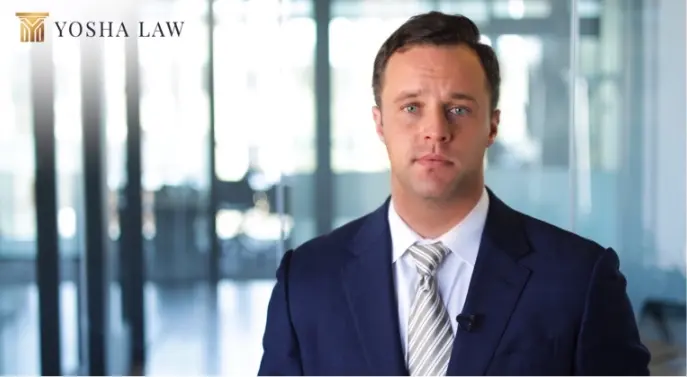
Did you know that an estimated 95% of personal injury cases are settled outside of the courtroom?
That’s just one thing to keep in mind when filing your personal injury suit. Your personal injury settlement has a lot of moving parts, from the type and severity of the injury to liability factors and fault. Each state has laws and limits for personal injury cases, but for this article, we’ll focus on Indiana. Here are a few things your personal injury attorney in Indiana will be looking at to determine the final settlement for your case.
Economic losses
Economic losses are the monetary losses you’ve incurred as a result of the incident. These include:
Property damages
Just as it sounds, property damage reimbursement is the actual cost of repairing or replacing your property, such as your car, after an incident.
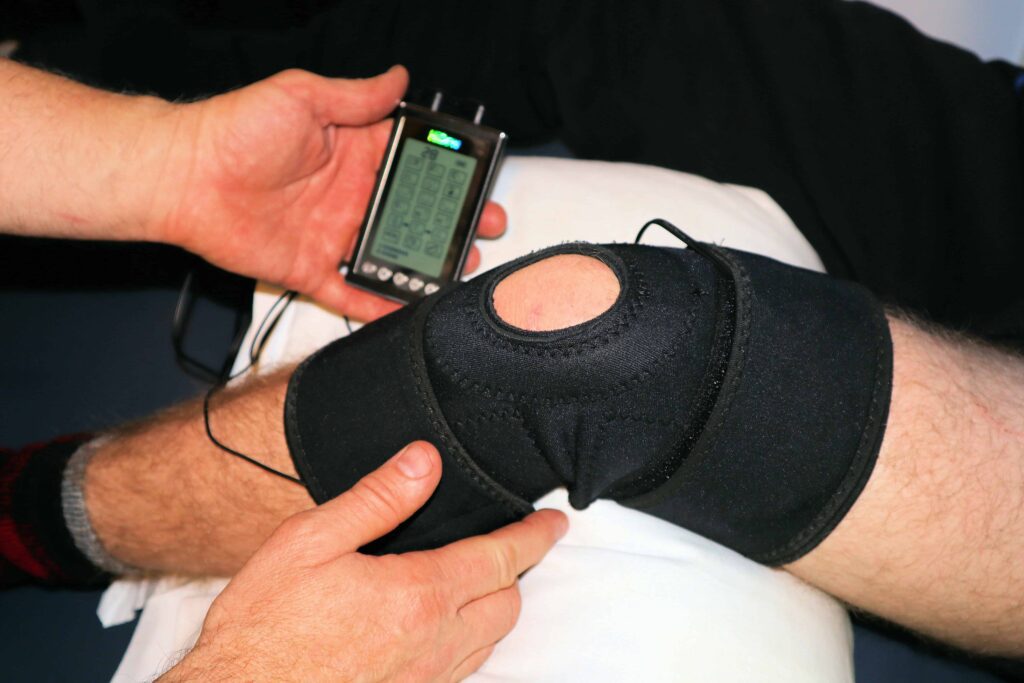
Medical expenses
Because almost every injury will require medical attention, you will be adding medical expenses incurred from the incident to your personal injury case in Indiana. You are entitled to receive compensation for treatments that are reasonable and necessary, which can include treatments received as well as future bills associated with anticipated continued treatment. This compensation includes emergency room visits, specialists, hospital stays, surgeries, physical therapies, and prescriptions. You may even be able to claim the costs of transportation to and from the doctor’s offices.
If you’ve suffered a significant injury that requires special equipment or household adjustments such as a wheelchair lift or ramp, these will also be submitted as part of the medical expenses.
You Get ONE Shot At Full Justice. We Make Sure You Take It.
*Available 24/7 & Obligation-Free
Lost wages
Many injuries will require time away from work for rest and rehabilitation. You may sue for lost wages and, in extreme cases, any disability that will require a change or loss of your job function.
Non-economic damages
These damages are a bit harder to prove, but an experienced personal injury attorney knows how to work with these compensatory claims to get you the maximum allowable award in your case.
Loss of consortium
Usually, loss of consortium compensation is reserved for wrongful death or very serious injuries. Loss of consortium means that an injury has left you or your spouse unable to provide the same spousal companionship enjoyed before the incident.
Pain and suffering
Receiving compensation for medical bills is welcome, of course, but it doesn’t take into account the physical pain and suffering the incident caused you. While this one is tougher to place a value on, it will usually rely on the extent of your injuries, your recovery time, and other factors.

Emotional distress
Personal injuries aren’t just physically difficult, they can be very emotionally trying, too. Again, this one is tough to put a value on but an experienced personal injury lawyer will help you understand your available compensation for emotional distress.
These “invisible” injuries can involve:
- Nightmares
- Anxiety
- Panic attacks
- Reluctance to take part in the activity in which you were injured (such as driving a car)
- Withdrawal from activities and relationships you once enjoyed
- Substance abuse or “self-medicating” following the incident
Punitive Damages
Punitive damages are compensation that is a punishment for the liable party, and usually involves an element of intention and maliciousness on their behalf. The object here is as much stopping the liable party from causing damage to anyone else as it is to recoup economic or non-economic damages.
In Indiana, punitive damages awards are limited to $50,000 or three times the settlement amount for damages, whichever is greater.
Indiana maximum settlement amounts
In Indiana, there are several categories of personal injury cases that have a maximum allowable award. These include medical malpractice, suits involving state government entities, wrongful death, and comparative fault. Let’s take a closer look at these.
Personal injury settlements against Indiana state and local governments
If your personal injury case involves a state, local, or county government, you may be surprised to know that the maximum allowable award is capped at $700,000.
Medical malpractice
While medical malpractice personal injuries can have many lingering effects on the patient for years to follow the incident, Indiana caps your award according to the date the malpractice occurred:
- Malpractice cases before June 30, 2019: $1.65 million
- Malpractice cases after June 30, 2019: $1.8 million
Comparative fault
Your compensatory award may be affected by how much liability you had for the incident. Indiana abides by the modified comparative fault rule, which means that if you’re found to be 51% (or more) liable for the incident you are not entitled to any compensation. If you’re under 51% at fault, your award will be reduced by the percentage of liability you hold in the incident.
This is definitely a time you need your personal injury attorney in your corner!
Wrongful Death
While there aren’t many caps to a wrongful death suit, an adult 23 or older who is unmarried and has no dependents is limited to a $300,000 award to their estate. This is the only compensatory cap on wrongful death lawsuits in Indiana.
Indiana’s mitigation requirement
Failure to mitigate, or minimize, the impact of a personal injury in Indiana can reduce your compensatory award. To avoid this complication, make sure you:
- Document each medical expense
- Journal your injury’s effect on your quality of life to justify a pain and suffering award
- Follow all doctor’s recommendations
- Attend all doctor’s appointments
- Stay away from sports or other activities that will delay your recovery

It’s all a numbers game
While predicting your financial compensation following your personal injury claim isn’t a precise science, most attorneys and insurance claims adjusters use a pretty simple formula to get a ballpark figure.
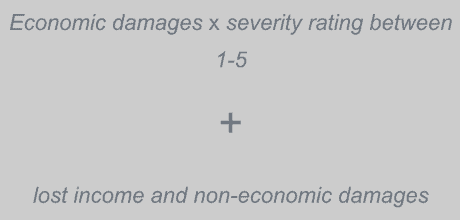
As an example, let’s say you’ve hurt your back in a slip and fall incident . You’ve incurred $50,000 in medical bills, missed six months of work, and are in a significant amount of pain each day.
For this example, we’ll give the back injury a severity rating of 3 and assume you’ve lost $25,000 of wages over the past six months, and your attorney is aiming for an additional $15,000 for your pain and suffering.

Using this straightforward formula, you can see that your possible compensation for this personal injury incident is $190,000.
But don’t celebrate yet; this amount is subject to several contributing factors.
- Documentation and medical collaboration
- The severity of your injury as defined by all parties
- Length of rehabilitation and recovery
- Permanent disability
As you can see, these factors can strengthen your personal injury claim or diminish it. It can’t be overstated enough: You NEED an experienced personal injury lawyer on your side to make sure you receive all the compensation you’re entitled to.

